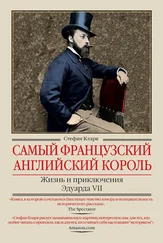Стефан Кларк - 1000 Years of Annoying the French
Здесь есть возможность читать онлайн «Стефан Кларк - 1000 Years of Annoying the French» весь текст электронной книги совершенно бесплатно (целиком полную версию без сокращений). В некоторых случаях можно слушать аудио, скачать через торрент в формате fb2 и присутствует краткое содержание. ISBN: , Издательство: Transworld Digital, Жанр: Старинная литература, на английском языке. Описание произведения, (предисловие) а так же отзывы посетителей доступны на портале библиотеки ЛибКат.
- Название:1000 Years of Annoying the French
- Автор:
- Издательство:Transworld Digital
- Жанр:
- Год:неизвестен
- ISBN:9781407067629
- Рейтинг книги:3 / 5. Голосов: 1
-
Избранное:Добавить в избранное
- Отзывы:
-
Ваша оценка:
- 60
- 1
- 2
- 3
- 4
- 5
1000 Years of Annoying the French: краткое содержание, описание и аннотация
Предлагаем к чтению аннотацию, описание, краткое содержание или предисловие (зависит от того, что написал сам автор книги «1000 Years of Annoying the French»). Если вы не нашли необходимую информацию о книге — напишите в комментариях, мы постараемся отыскать её.
1000 Years of Annoying the French — читать онлайн бесплатно полную книгу (весь текст) целиком
Ниже представлен текст книги, разбитый по страницам. Система сохранения места последней прочитанной страницы, позволяет с удобством читать онлайн бесплатно книгу «1000 Years of Annoying the French», без необходимости каждый раз заново искать на чём Вы остановились. Поставьте закладку, и сможете в любой момент перейти на страницу, на которой закончили чтение.
Интервал:
Закладка:
Cowardly, perhaps, but effective. Like an English pensioner hit by the rising euro, Edward quite simply could not afford to stay in France, and had to withdraw. He was so short of money that he even had to leave his wife Philippa in Ghent as security for loans. His invasion – the attack that was supposed to sweep him to Paris and win the French throne – had lasted a month and got him no further than the outskirts of Calais.
However, in terms of the war to come, the mission had not been a total loss, because Edward and his troops had created a brand-new concept, and in a brilliant piece of double-speak they had given it a French name to hide the fact that it was an English invention.
The French word chevauchée had previously meant a harmless horse-ride, a refreshing trot in the country, but Edward III now gave it a much less innocent meaning. As his men marched through France, he ordered them to destroy everything in their path. He even boasted about it in a letter to his son, the Black Prince, noting matter-of-factly that he advanced with ‘our people burning and destroying to the breadth of twelve or fourteen leagues of country’, and that the area around the city of Cambrai was ‘laid waste, of corn and cattle and other goods’. He didn’t mention that this involved torching whole towns and forcing the population to flee or be put to death.
A similar technique had been used in England by William the Conqueror, mainly as a punitive action to put down rebellion. But this was how Edward planned to wage his whole war , in an attempt to make France so sick of the carnage that they would capitulate. It was almost exactly the same argument that would be used to justify bombing Hiroshima and Nagasaki in 1945. If nuclear warheads had existed in the fourteenth century, the only thing that would have kept Edward from using them would have been the loss of profitable hostages and the danger that the French throne would be too radioactive for him to sit on.
French tactics are a joke
Edward III was obviously a cruel man, but one thing you could not fault was his determination. Because no sooner had he returned to England than he persuaded Parliament to vote him a tax on wool, corn and lamb, and – to prove that he wasn’t anti-rural – a straight one-ninth share of every townsman’s property. He used the money to get his wife out of hock and prepare a new anti-French campaign. And this time he would meet with spectacular success.
Aware that Philippe was preparing an invasion fleet, Edward decided to hit the enemy at sea. In June 1340, he led around 200 ships, most of them converted merchant vessels, out of Suffolk and across the Channel.
On paper, this was pure folly. Edward’s ships were converted cargo vessels, whereas the French had rented highly manoeuvrable Genoese war galleys that were equipped with rams and catapults and captained by an old Genoese sea-dog usually known as Barbanera, or Blackbeard. These, along with shiploads of French men-at-arms, 3were now anchored in a large natural harbour at Sluys, in modern-day Holland, tied up side by side in a defensive battle line to prevent boarders.
Edward’s plan was simple: he would sail straight at them and board, using his armoured troops. Men in medieval armour clambering over the gunwales of a ship? A less optimistic leader might have thought that this was not very practical. However, Edward did not know that he had one massive factor in his favour, a French weakness that lives on to this day.
Philippe VI’s fleet may have had a great Genoese sea-captain on hand to lead it, but Barbanera was outranked by the two Frenchmen in charge, Hugues Quiéret and Nicolas Béhuchet, neither of whom were seamen. One of them, Béhuchet, was a former tax collector. And when Barbanera advised them to leave harbour and take to the open sea, where his nimble galleys would be able to dance around the sluggish English fleet and sink it, the two Frenchmen refused.
This is a very French trait. Today, if a big manufacturing company is in trouble, it will parachute in a graduate of one of France’s grandes écoles , someone who has studied business theory and maths for ten years but never actually been inside a factory. The important thing to the French is not experience, it is leadership – or, more exactly, French-style leadership, which mainly involves ignoring advice from anyone with lots of experience but no French grande école on their CV.
So Quiéret and Béhuchet kept their fleet at anchor while Edward sailed slowly but surely into harbour and discovered to his surprise that the supposedly defensive French line left the end ships vulnerable to boarding from the side. What was more, the other ships, being tied up alongside, could not sail to their aid.
While the two French admirals consulted the manual on what to do in such cases, the English troops were able to clamber along the row of vessels, from one ship to the next, first wreaking havoc with a bombardment of arrows (British longbowmen were seeing their first major action abroad) and then storming the surviving French soldiers, taking the rich ones prisoner and throwing the rest overboard, where their armour did not help them swim to safety. Any lightly clad Frenchmen who made it to shore were promptly hacked to death by the Flemish locals.
Barbanera, the Genoese veteran, quickly realized that this was going to be a disaster of titanic proportions (even though the Titanic would not sink for another 572 years), and rowed his galleys swiftly away so that his men could live to fight for paymasters who might actually listen to his advice.
Overwhelmed, the French leaders, Quiéret and Béhuchet, tried to apply what they had learned of the theory of medieval war by surrendering and being held for ransom, but it was not to be their lucky day. Quiéret had his head lopped off, and Béhuchet was taken to Edward III’s flagship and strung up, so that the sight of his swinging corpse would demoralize the remaining French troops. Edward might have needed ransoms, but he was fighting total war – so total that even the ship containing his wife and her attendants had taken part in the battle, resulting in the death of a lady-in-waiting. It was the last time the Queen was going to accept one of Edward’s invitations to ‘take a spin on my yacht’.
The result of the encounter was that the French invasion fleet was almost totally destroyed, and France lost tens of thousands of its troops. King Philippe VI’s courtiers were so nervous about giving him the bad news that it was left to the court jester to tell him in joke form.
‘Our knights are far braver than the English,’ the jester said.
‘Why is that?’ Philippe asked.
‘Because the English don’t dare to jump into the sea in full armour.’
Like many French jokes, it had to be explained, and didn’t get much of a laugh.
Crécy, a battle caused by the loss of some bacon
It was yet another French traitor who spurred Edward on to fight the next phase in the war – a little spot of collaboration that would result in an even more disastrous defeat for Philippe VI.
Geoffroy d’Harcourt was a Norman knight who had sworn an oath to fight for Philippe VI. However, when Geoffroy decided to marry a rich Norman heiress with the very rural name of Jeanne Bacon, he found that he had a serious rival – a powerful friend of King Philippe’s called Guillaume Bertrand. Predictably, Philippe declared that Jeanne should marry Guillaume (no one asked Jeanne what she wanted), so Geoffroy started a small-scale private war against the Bertrand family. It probably got no further than burning a few farms and murdering some cows and peasants, but the Bertrands complained to the King, who confiscated Geoffroy’s land and had four of his best friends beheaded.
Читать дальшеИнтервал:
Закладка:
Похожие книги на «1000 Years of Annoying the French»
Представляем Вашему вниманию похожие книги на «1000 Years of Annoying the French» списком для выбора. Мы отобрали схожую по названию и смыслу литературу в надежде предоставить читателям больше вариантов отыскать новые, интересные, ещё непрочитанные произведения.
Обсуждение, отзывы о книге «1000 Years of Annoying the French» и просто собственные мнения читателей. Оставьте ваши комментарии, напишите, что Вы думаете о произведении, его смысле или главных героях. Укажите что конкретно понравилось, а что нет, и почему Вы так считаете.












